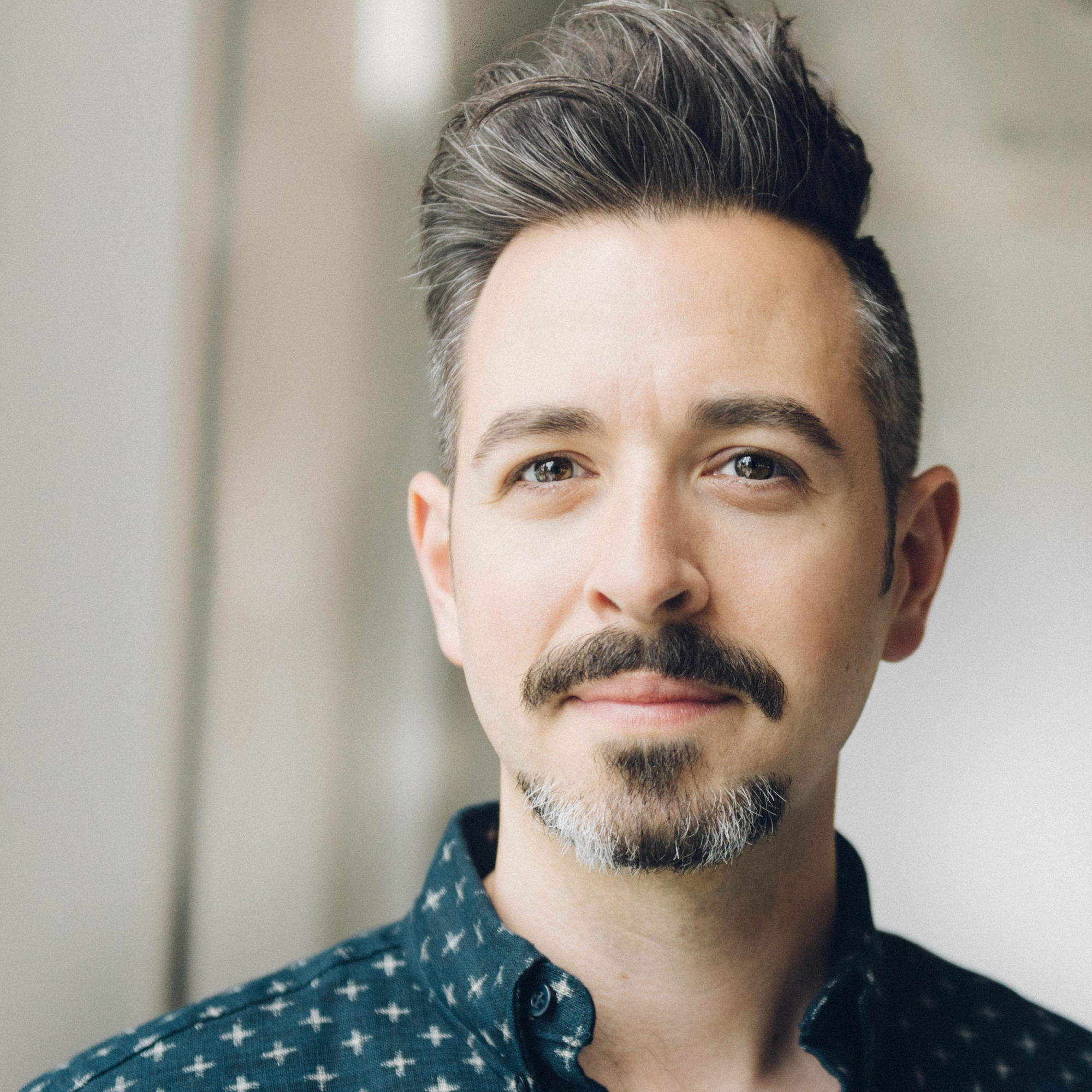While we’re getting ready for this fall’s conference, we thought we’d give you a little taste of what to expect. Here’s an interview with Rand Fishkin, co-founder of SparkToro, Moz, and Inbound.org, and one of our featured speakers. Enjoy!
Thanks for taking the time to talk with us Rand! Tell us a little bit about yourself and your business.
Well, I started a company called Moz, which I’m best known for. I was with that company for seventeen years. I stepped down in 2014 and left the business in 2018 to start a new company called SparkToro. Moz was in the SEO space, but SparkToro is more in the audience intelligence space ― helping marketers understand what their audiences pay attention to, where they can reach them and engage them, how they can get their messages in front of those folks.”
During the last few years of Moz I also wrote and published a book called Lost & Founder, about the long entrepreneurial journey to start that business.”
I do a lot of speaking ― well, historically I do a lot of speaking and travel, but these days I do a lot of podcasts and webinars. I’m well-known for blogging and writing and filming a video series called Whiteboard Fridays.
Given that Ascent (and a lot of other conferences) are trying to navigate the switch to an online format, what are your thoughts on the process and the difference?
I think the good part is that there’s a lot more stuff that’s free and accessible and there’s a lot more stuff that’s recorded, which makes it viewable all around the world, no matter what time zone you’re in. Of course, in the marketing world, a lot of people have been laid off, and so it’s really wonderful that we can make these things more available.
In terms of downsides, the engagement is nothing like it was with in-person [events]. I think the ability to network and build relationships has been compromised dramatically, and that’s really tough.
[At this point in the interview, Fishkin was briefly interrupted by an unexpected visitor, which conveniently led to our next question].
How has the adjustment to working from home been? Were you working from home before? Has COVID-19 impacted your workflow?
I’ve been very lucky, my co-founder, Casey [Henry] and I were already working from home, so aside from not being able to get together every week or two in person, it hasn’t been really a big shift. The biggest shift for me is mostly a lot less conference travel, and a lot less in-person meetings.
How has the COVID-19 crisis pushed you to make changes in both your personal brand or marketing approach and in SparkToro’s?
The biggest shift for us has been recognizing that many marketers don’t have budget anymore (many marketers don’t have jobs anymore), and thus we need to do more to help folks for free and offer a more generous version of our product. We need to try to be as helpful and supportive to free users as we can, and that we’re going to have to bunker down and have low expenses for the next six to eighteen months. And hopefully when things recover, and when folks are ready to do marketing again, they’ll make those investments and they’ll remember that SparkToro is a great tool for doing that.
I think that’s our big mental shift. It’s very frustrating, obviously, because when you get a new business off the ground [SparkToro officially launched on April 22nd], you would prefer to launch into a better environment, but it is what it is.
That’s a challenge for a lot of smaller and VC-funded businesses, how is SparkToro planning to survive?
We have a very unique funding structure — we basically have private angel investors who own units in our LLC and get profit distributions.
How are you approaching networking now that in-person meetings are more difficult?
I would say that I have not yet found a replacement. I’m not sure that there will be one. I was always active on social media and over email, but it’s just not the same.
What do you see as the greatest challenge facing marketers trying to navigate the new post-pandemic world?
I think that the biggest challenge for most everyone is two-fold: one, if your business is directly connected to in-person gatherings, whether that’s restaurants or theater or events or sports or travel, those businesses have to figure out ways to either shift their model or structure, or they have to find ways to weather the storm through donations or government subsidies or passionate customers, something like that — or they have to exist outside the United States, where things are opening up. Those businesses that are most affected have a much bigger challenge in that they essentially need to change their model.
And then a ton of other businesses and the marketers around them have this challenge of operating in a recession/depression type of environment. I think that we are seeing, with the United States economy in particular, that we are in for a very long, protracted period of pain. Those marketers have to deal with the fact that their budgets are cut, that they can’t spend as much on advertising as they could; there’s more online attention than ever before, but lower conversion rates, less willingness to buy, and people can’t spend the same dollar amounts that they could, etc.
I think that portends for marketers, that if you’re trying to get people to buy your product, whatever that might be, you are almost certainly affected by the fact that people have fewer dollars to spend — or no dollars to spend.
I think that is a real challenge for a ton of marketers, they have to figure out how can we essentially invest in creating future demand, get people to subscribe to our emails, and come to us for content, have a positive relationship with our brand, and then in the future, when things recover, we can start doing more substantial forms of marketing. And that’s pretty hard for a lot of folks, who I think are used to the last twelve years of growth.
I think that the long-term winners of this are those who don’t pull back, and who re-invest those dollars that they might have spent on paid marketing into long-term forms of organic, whether that’s content, SEO, email marketing, podcasts, episodic content, relationship-building, all those formats. I think they will see faster recovery and more success when compared to the businesses that don’t.
Given that there’s so much more competition for attention, what’s your advice for breaking through the noise?
I think this is very dependent on who your customers are, but the best advice that I have is to focus on the intersection of three things: first where do your customers pay attention, and how? If my customers are people who subscribe to and watch a lot of YouTube channels, for example, I would put that on my radar as an area to invest.
Second, where can you add unique value? What is it that you can do that no one else can do? Maybe you have great data or great insights. Maybe you’re just a phenomenal creator of this type of content. Maybe you can just out-hustle the rest of your industry. Whatever your unique strength is, you can add value in that way.
And then the third thing is that you need to have an area of passion as well. So if, for example, you really love short form content on LinkedIn, you can probably add unique value there, and if your audience is there and paying attention, that’s a great intersection for you.
Following these strategies isn’t so much a way to break through the noise as it is a way to consistently invest in marketing that produces ongoing returns and hopefully scales those returns with decreasing friction.
Can you give us a little preview of what you’ll be talking about at Ascent?
So I’ll be talking about how Google and Facebook control an overwhelming amount of ad spend online, and they also command a huge amount of attention online, but not nearly as much as their advertising does.
So Google has something in the range of $70 billion spent on their paid search ads, and yet, for every click on a paid ad, there are ten or eleven clicks on organic results. So if your paid advertising budget is, say, $1000 a day, is your organic budget $10,000? Because if not, you might be losing out to someone who is thinking in that way. There’s a tremendous amount of opportunity there.
Furthermore, when we go to the “source” [Google and Facebook] we sometimes forget to ask — where does my customer pay attention? To whom do they pay attention? What podcasts do they listen to, what publications do they read, who do they follow? Could I go do marketing in those places, and if I did marketing in those places, could I save money and build a more powerful relationship, and could I do more creative forms of marketing than what Google and Facebook would allow me to do? And could that mean that I would build a competitive advantage in marketing, instead of doing what every other business does, which is throw a bunch of money at the ad platforms? I believe the answer to all those questions is ‘yes’, and so the only issue then is do I have the will and discipline to follow through.
Google and Facebook make increasing your ad-spend extremely frictionless and easy, but what’s wonderful to realize is that you don’t have to be beholden to what your competitors are beholden to.
Be sure to catch Rand at Ascent Conference on September 30th!


